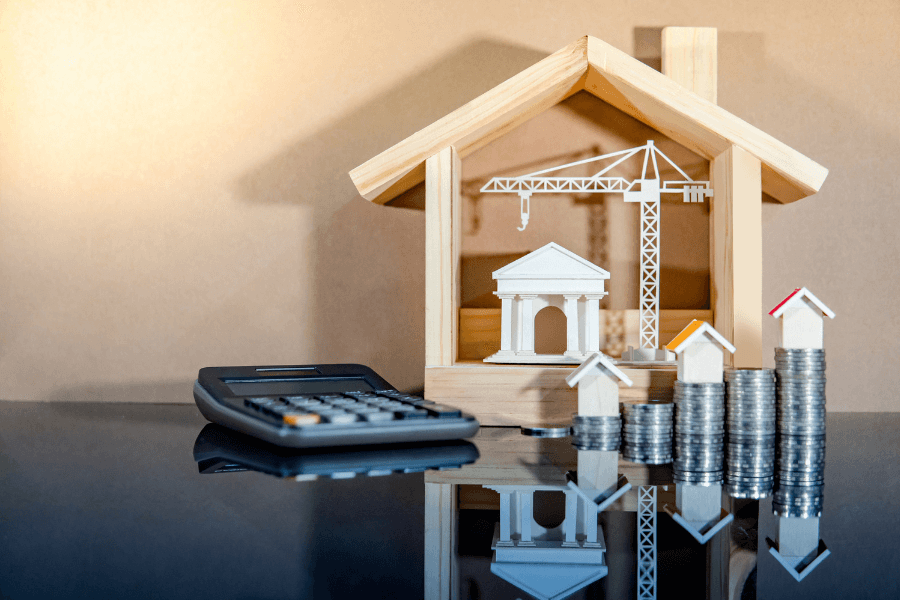How to save for a home deposit as efficiently as possible

It’s one of life’s most memorable milestones, but purchasing a property doesn’t come easy for many. With multiple costs to budget for, including stamp duty, insurance, inspection and valuation fees, and ongoing loan costs, coming up with a deposit is just the beginning of the homeownership journey, from a financial perspective.
With soaring property prices in many of Australia’s capital cities, it’s no surprise that it can take some of us a considerable amount of time to save the required funds to secure a property.
A new finder.com.au analysis of 2,006 Australians revealed that one third of us spend over five years saving for a home deposit. The research also showed the majority of us take 3.7 years on average to save the money for a down payment.
Prospective home buyers from Queensland and New South Wales take the longest time to save a deposit, taking nearly four years, on average. However, South Australians take the least time to save for a deposit, with 72 per cent taking under five years.
Men take slightly longer to come up with the funds for a deposit compared to women, however it’s unsettling to know that over 11 per cent of Australians have spent more than 10 years saving for a home deposit.
To save for a deposit as efficiently as you can, and to reduce the time it takes you to complete a down payment, here are some practical ways to boost your deposit fund.
 For sale: 10 Daintrey Street, Fairlight, NSW
For sale: 10 Daintrey Street, Fairlight, NSW
Come up with a savings strategy
To define a savings strategy, you firstly need to know how much you need to save for the deposit. For most full documentation loans in Australia, you’ll need a deposit that equates to at least 20 per cent of the property purchase price if you don’t want to pay lender’s mortgage insurance (LMI). This means if you’ve got your eyes on a property valued at $450,000, you’ll need to put forward $90,000 for your deposit. However, rest assured, there may be ways you can reduce this financial responsibility. For example, if you consider a co-borrowing arrangement or if your parents go guarantor on the loan, then other parties may absorb or share some of the deposit cost with you.
After you’ve come up with your deposit target, think about how you’ll achieve this savings goal. You may decide to consolidate your personal debt, sell unwanted or unused items such as your vehicle or electronic devices, or you may become resourceful about making extra cash by renting out a room in your property to receive rental income.
You then need to forecast how long you think it will take you to muster up the funds for the deposit. By having an idea of how much you can save each month, you’ll be able to estimate how long it will take you – whether it’s months or (more likely) years.

Sign up to a high-interest savings account
Any money you put aside for your deposit, or any additional income you make, should be invested wisely, and one way to do this is to deposit the money into a high-interest savings account or a term-deposit account. Currently, banks are providing interest rates as high as 3.05 per cent so see what’s out there and compare your options.
When signing up to a new savings account, pay attention to the account terms particularly when it comes to earning bonus interest. For example, you may need to deposit a certain amount and make no withdrawals each month in order to earn the additional interest. Set up an automatic transfer from a nominated account so you don’t have to worry about remembering to meet the deposit requirements.
Be a money go-getter
When we talk about the ‘lazy tax’, we refer to those of us who become complacent with our financial products and providers. To avoid being complacent, make smart choices about how to best manage your money, and save. For example, if you think you’re paying too much for an account, whether it’s your Internet or TV subscription, your life insurance, or an existing loan, do some market research to see what else is on offer – chances are you’ll find a better deal by either negotiating with your existing provider or by switching to a new provider.
Make personal sacrifices
Saving for a home deposit takes time and it also requires making some adjustments to our existing financial and lifestyle habits. If you want to save as quickly as you can, you may need to cut back on overseas holidays, impulse purchases, and entertainment costs such as eating out or going to the movies. Small changes to your lifestyle can make a big difference when it comes to reaching your long-term savings goal.
Saving for a deposit is just the beginning, but if you create a strategic savings plan including tactics of how you’ll achieve your goal, and if you take a proactive approach with your personal finances, you’ll save a deposit and achieve your homeownership dream that little bit faster.
Written by:
Bessie Hassan
Bessie Hassan is a Money Expert at finder.com.au, the site that compares virtually everything. She regularly appears on national radio, TV, and throughout online publications sharing her best money-saving tips and property advice. She’s passionate about helping Australians make more informed decisions so they can improve their quality of life.





